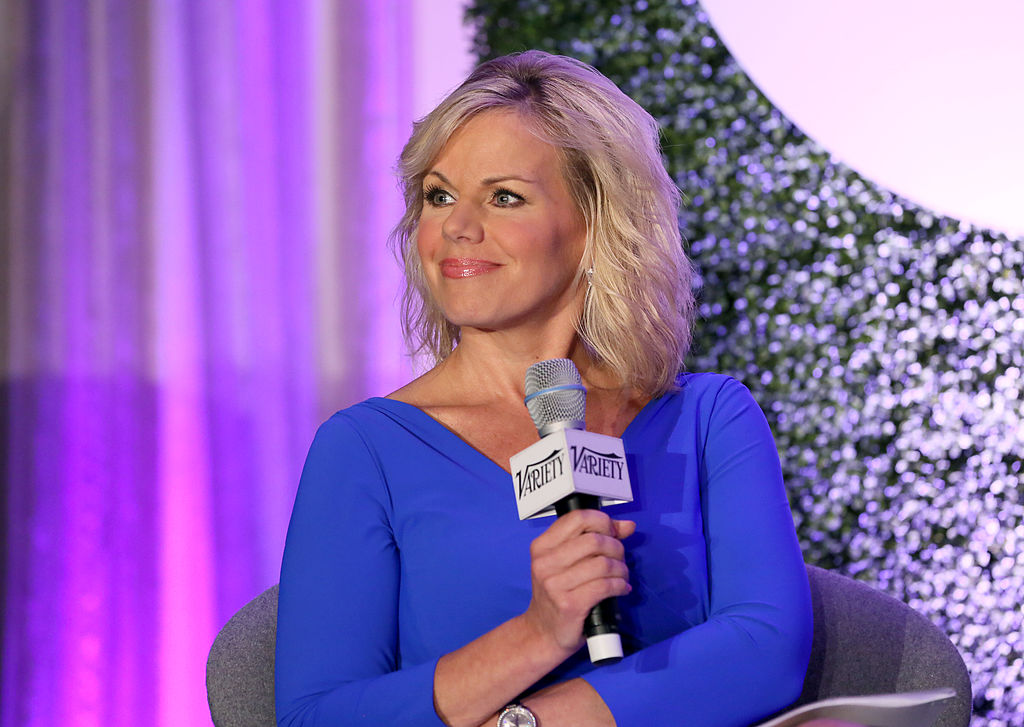
Longtime Fox News chairman Roger Ailes is out the door at Fox News. Though there may have been some drama due to his rumored preexisting feuding with the Murdoch family, the tipping point was a recent lawsuit for “compensatory damages” – including mental anguish – from former Fox News anchor Gretchen Carlson.
Earlier this month, Carlson alleged that Ailes sexually propositioned and harassed her during her time at Fox, and that he effectively stonewalled her career at various junctures after she refused him, culminating in his firing her from the network last month. You can download and read the lawsuit in full here. In the time since Carlson went public, six more women have spoken publicly about similar harassment by Ailes (and it’s been reported that at least that many more privately contacted Carlson’s lawyer), setting off a shockwave in the media industry. Ailes has denied all these allegations.)
The question mark at the crux of the situation is Fox’s star anchor, Megyn Kelly.
As a string of her female colleagues rose up in Ailes’ defense, Kelly remained silent. Now, several reports have leaked to the effect that Kelly spoke to Fox lawyers and accused Ailes of unwanted sexual advances made earlier in her career. The details of the alleged harassment came from unnamed sources close to Fox, who informed New York Magazine’s Gabriel Sherman – who authored a 2014 biography of Ailes and has reported on him extensively –that Kelly shared the details of Ailes’ advances toward her about 10 years ago with investigators. Kelly has not yet commented on the situation – “nor will she while the review is pending,” says her lawyer, “other than to say she has cooperated with the inquiry fully and truthfully.”
The narrative around Ailes is complicated. He has a firm army of female defenders, and both Carlson and Kelly have made comments—after his alleged harassment of them took place—to the effect that he was good for their careers and that they enjoyed working with him.
As recently as May, Kelly told TIME that “if you respond to the bully, you’re going to get more bullying. The bully wants to control you. The bully wants a response from you. That’s half the reason why he does it.”
Many have mused that it doesn’t make sense for these women, particularly someone as outspoken against misogynists in the industry as Kelly, to have appeared allied with Ailes. Why would Kelly ever say she enjoyed working with him if he’d demeaned and harassed her in the past? Or so the thinking goes. And as critics of Carlson have pointed out, she did benefit from Ailes’ attentions in terms of the upward mobility of her career (that is, until she didn’t).
But that kind of dichotomous, black-and-white thinking isn’t how harassment and sexism work. It’s messier. The same system of institutional male privilege can discriminate against women even while they’re able to ascend in it. We still expect women who have experienced male sexual aggression—from harassment to rape—to be perfect victims with perfect stories. Kelly’s alleged harassment took place a decade ago, and in the time since she’s presumably had to interact with her boss, mentor, and alleged harasser pretty frequently.
In that same interview with TIME, Kelly said that the best way to beat a bully was to keep your head down and simply push forward, to not give them the gratification of response. Carlson stated that Ailes sabotaged her career and told her that she needed to stop being such a “man-hater” and just “get along with the boys.” And then, suddenly she found herself without a job. That is something to which she is fully justified in responding, as she’s chosen to do. Perhaps Kelly’s reported discussion with investigators means she’s decided to respond, too.
Read more: Conservatives Are Not Happy With Megyn Kelly’s Convention Clothing
I’ve never really been able to get on board with the Kelly-as-feminist-icon narrative, but I respect her ability to achieve a successful career despite the sexism she must have faced throughout the years in a male-dominated industry (and at Fox, no less). Nobody should hold it against her that, in the span of a decade, she potentially made the occasional friendly comment for the sake of convenience. Nobody should invoke the passing of time as a reason to doubt any woman who comes forward about sexual harassment after the fact – it’s a crappy reality for many women, but sometimes they’re pushed into a ‘go along to get along’ mentality in order to be able to make any sort of career headway at all, and the most opportune time to face their harassers doesn’t come until later.
You can’t really expect someone to fight a battle every time they open their mouth, not for 10 years, not if they also want to be able to actually do the work they came to do. I also don’t think it’s impossible that Kelly and Ailes had some non-harassment-laden moments during that decade and that she could have also developed a more functional relationship with him— that in no way excuses any alleged sexual aggression, towards her or any other woman.
Hopefully the next woman to be sexually harassed by a powerful male coworker won’t feel she has to wait as long to come forward.
More Must-Reads From TIME
- The 100 Most Influential People of 2024
- The Revolution of Yulia Navalnaya
- 6 Compliments That Land Every Time
- What's the Deal With the Bitcoin Halving?
- If You're Dating Right Now , You're Brave: Column
- The AI That Could Heal a Divided Internet
- Fallout Is a Brilliant Model for the Future of Video Game Adaptations
- Want Weekly Recs on What to Watch, Read, and More? Sign Up for Worth Your Time
Contact us at letters@time.com